An exclusive interview with His Excellency Asim Iftikhar Ahmad
Words MAXMILIAN WECHSLER
Words MAXMILIAN WECHSLER
| When Asim Iftikhar Ahmad arrived in Bangkok in June 2017 to take his post as Ambassador of the Islamic Republic of Pakistan, his first impressions of the city were a bit out of the ordinary. “I was thinking, as we drove from the airport and approached Bangkok city, that it’s a lot like coming from Queens into Manhattan. The resemblance is very much there. I often mention to my friends that as soon as you see the Bangkok skyline, it seems you are on the FDR East River Drive in New York,’’ said the ambassador, who knows that city very well. He spent more than nine years in New York during several postings at the United Nations headquarters, including two stints as a member of Pakistan’s delegation to the UN Security Council (UNSC). In Thailand, the ambassador is also permanent representative to the United Nations Economic and Social Commission for Asia and the Pacific (UNESCAP). He joined Pakistan’s Ministry of Foreign Affairs (MFA) in 1993 and had since held a number of positions in Islamabad and Pakistani missions abroad, with a strong emphasis on multilateral diplomacy. At a reception he hosted to celebrate Pakistan’s National Day on March 23 at the Shangri-La Hotel, Mr Asim accepted The BigChilli’s request for an interview that was later held at the Pakistani embassy on Sukhumvit Soi 3. |
| Background “I was born in November 1966 in the city of Lahore, where my family has lived for generations. My family is mostly in business, industry and services. Lahore is a city with a rich history in the Punjab province of Pakistan, close to the border with India. I would say that my grandfather and forefathers were witnesses to the freedom movement and took part in the struggle that led to the emergence of Pakistan. They saw it all, as Lahore was so central to the movement. Lahore is also called the ‘Heart of Pakistan’. There are many historical monuments and famous sites, and it is a centre of learning as well. Many of the country’s well-known colleges, universities and other educational institutions are there. Apart from its history and rich cultural traditions, Lahore is famous for art, film and drama, fashion, and above all its cuisine,” said the ambassador. “I graduated from the University of Engineering and Technology, Lahore. In October 1993, I joined the Foreign Service of Pakistan. It is not easy to explain, but I can think of several factors behind this decision. I liked engineering, and I initially worked for two years as an engineer. At the same time, I was looking at other options to advance. Civil service seemed like such an opening and looking back I feel it was the right choice as it offers better opportunities and forums to contribute to national policy and decision making at a high level.” | As his CV attests, Mr Asim has done just that. “My last assignment was at the MFA in Islamabad as Director General of UN Division. That three-year tenure was as vital as it was rewarding. It is one of the most coveted positions in the MFA. I also take great pride in having been a member of the Pakistani team on the UNSC on two occasions, 2003-4 and 2012-13, and in other roles at Pakistan’s Permanent Mission to the UN, besides a stint as the deputy chef de cabinet for the president of the UN assembly in 2009-2010. This was a very useful and distinctive experience for me, and also an honour for Pakistan. “My first assignment abroad was in Niger in 1997. Later on, I was posted to the UN Pakistan Mission in New York for the first time. I was a junior officer at that time and excited to be part of our UNSC team. I arrived at the start of Pakistan’s membership on the Security Council in January 2003. For the next two years, I had the privilege of coming to know from the inside how the UNSC operates. It was a special experience.” Pakistan at glance Ambassador Asim noted that Pakistan is the sixth most populous country in the world, with a population of 207 million. “Having gained independence in 1947, Pakistan has accomplished tremendous achievements in all spheres over the years. Today, Pakistan is a strong, democratic and progressive country recognised for its role in the promotion of peace, stability and development at regional and global levels. Pakistan is a leading voice of the developing nations and the Islamic world. | “We are a firm believer in multilateralism and an active member of the United Nations. Pakistan has made tangible contributions to the maintenance of international peace and security through participation in UN peacekeeping missions around the world. “Pakistan is also a great advocate of regional cooperation and is an active member of some regional and cross-regional forums including Economic Cooperation Organization, South Asian Association for Regional Cooperation, Developing-8, Asia Cooperation Dialogue, Asia Europe Meeting, and the Shanghai Cooperation Organization. Similarly, recognising the critical role and significance of ASEAN, Pakistan has developed strong linkages with ASEAN and all its member states. “The Pakistani government is pursuing the ‘friendly neighbourhood’ policy, which goes with our attachment to regional cooperation, and peaceful co-existence and harmonious relations to realise the true development potential of our country and the region. At home, political maturity, free press, strengthened institutions and vibrant civil society have further consolidated the democratic process. The present government will complete its five-year term in May this year. “Sustained security and law enforcement efforts have brought about a remarkable improvement in the overall situation in Pakistan and enabled an environment that encourages development and investment. |
| “The revival of the economy and its continuing upward trajectory testify to the success of the government’s economic and development policies. From 4.7% in 2015/16, GDP grew at 5.3% in 2016/17 and is expected to cross 5.6% during the current financial year. According to an IMF/World Bank survey, Pakistan’s economy surpassed US$1 trillion (regarding purchasing power parity) in October 2017, becoming the 25th country in the world to join the Trillion Dollar Markets Club. Pakistan has a substantial middle class with rising incomes and a fast growing market. “A tremendous lift to development has been provided by the China Pakistan Economic Corridor, which is a flagship connectivity project of the Belt and Road Initiative. CPEC now comprises investments of over US$65 billion. It is already creating an impact, boosting economy and investor confidence. It is going to transform the development landscape of the region fundamentally. The new deep-sea port at Gwadar is being tipped as the future trade hub in the region.” |
| Assignment in Thailand n the Pakistan foreign service, as with most foreign ministries, we start as 3rd secretary and move up the ladder. When you are experienced enough, you are offered ambassadorial assignments. A basic requirement is that you must have held a position as director-general, which is equivalent to civil service grade 20 in Pakistan. This is my first ambassadorial posting. Normally the first assignment won’t be at a location like Beijing, Washington D.C., or Geneva. There were two or three options available to me, and I didn’t have to think twice about choosing Bangkok. It was a very nice option and a good choice. “I am here with my wife and two daughters who are in high school. Our eldest daughter is pursuing her studies in medicine in Pakistan. Thailand is new to all of us. Imagine coming to a country for the first time, and that as the ambassador of your country. It is a wonderful and unique experience indeed. I must say that from friends and family we had heard a lot of good, exciting things about Thailand, and we are finding it all to be true. It has been a great experience so far. In our system, the length of assignment for an ambassador is usually three years, with some flexibility. “My primary role is to promote goodwill and friendship between the two countries and peoples and to further strengthen long-standing bilateral relations in a mutually beneficial manner. I see bilateral relations more as a partnership, a cooperative framework based on mutual trust and understanding, a win-win relationship. Our efforts at the embassy are deployed to advance this objective, and we work closely with the Royal Thai government in this regard. “I would like to note that the relationship between our two countries has been developed and nurtured by many political leaders, diplomats, technocrats and other people on both sides over the years. Our job is to build on and consolidate the relationship. We also want to diversify by focusing more on areas that have not so far been fully explored. There are many new ideas and initiatives, new ways of doing things in many areas. “We are focusing on all aspects of our bilateral ties political, defense and security, development, trade and investment, education, scientific and technological cooperation and so on. We intend to enhance cooperation with Thailand in regional and international forums based on our shared interests of peace and development. We are also eager to promote people to people contacts through cultural and educational programs along with sports and tourism. I am reaching out in particular to the business community, media, intellectuals, universities and think tanks in Thailand. | “Of course, one of our primary responsibilities is to look after the interests and well-being of the Pakistani community in Thailand, and we naturally attach great importance to this. We take our work at UNESCAP very seriously, and this is also a way of maintaining my longstanding engagement with the UN, where Pakistan has traditionally played a constructive and leading role on a host of issues. “Pakistan and Thailand established diplomatic relations on October 10, 1951. The embassy here was opened a little later, and I recall that the first Pakistani ambassador was appointed in 1954. Before that, we had a chargé d’affaires based here. We moved to the current location of the chancery in 1963 when we bought this property. Relations between our two countries have been excellent all along, very cordial and always absolutely trouble free. “By our standards, the Pakistani embassy in Bangkok is a mid-size mission. Apart from myself, there are five other officers and some support staff from Pakistan, 18-19 people in total. Then we have nine or ten local secretarial and other staff, mostly Thai nationals. It is a very good team. All the Pakistani staff resides on the premises, so traffic is no excuse for being late for work,” said Mr Asim smiling. “We are in a busy area, so it is good to avoid the commute and the traffic. “We are keen to maintain high-level political contacts to provide momentum to the bilateral relationship, which we desire to rise to a more strategic level. We have a particular focus on trade and investment, and these are likely to get a further boost with the conclusion of the free trade agreement, negotiations on which are in final stages. We are also working to reinvigorate the Joint Economic Commission. “It is a multifaceted partnership, and therefore we shall continue to complement bilateral political and economic ties with increased cooperation in the defense, security and intelligence domains. Pakistan is sharing its experience as a top troop contributor for UN peacekeeping missions, as well as our success in the fight against terrorism. A new Memorandum on Defence Cooperation is close to agreement between our two countries. “Pakistan and Thailand have so much to learn and benefit from each other’s development experiences. On our side, there is much interest in the Sufficiency Economy Philosophy espoused by the late King Bhumibol Adulyadej. Their Majesties, the King and the Queen, visited Pakistan in 1962, and since then there have been many high-level visits on both sides. | “The strategic locations of our two countries allow us to rightly claim the title of the gateway to our respective regions – Thailand to Southeast Asia and Pakistan to Central/West Asia and the Middle East. This offers immense opportunities for promoting cross-regional access and connectivity. We are undertaking mega projects like the China-Pakistan Economic Corridor (CPEC). Likewise, Thailand is pursuing its Eastern Economic Corridor (EEC) and other projects. Pakistan’s Vision East Asia and Thailand’s Look West policies complement each other. I would say both our countries are great believers and advocates of multilateral, and regional cooperation. “With a population of over 200 million, a large and growing middle class, an upward economic trajectory and vigorous infrastructure development, Pakistan offers a huge market and an attractive investment environment for Thailand. We are deploying efforts to create more awareness among public and private sectors of both sides about the opportunities that exist. “Bilateral trade is on the rise and the total value exceeded US$1.5 billion in 2017, which is a record. But most of it, about 90%, was in exports to Pakistan. Around US$150 million worth of goods were exported from Pakistan to Thailand. This is a big deficit, and it is something we have been trying to address. However, the fact is that both Thai and Pakistani exports are increasing gradually. There are some issues of import duties and tariff and non-tariff barriers, which are being taken care of in the FTA. With a more favourable environment, trade is going to increase further. “Pakistan imports from Thailand automobiles, spare parts and CKD car kits. Other major imports are rubber, plastics, food products, polyurethane, machinery, air conditioning equipment, computers and appliances. The greater part of our exports to Thailand is comprised of fish and fishery products, apart from textiles, leather products, surgical instruments and sporting goods. Most of the footballs you see in Thailand are handmade in Pakistan. We are also exploring the possibility of cooperation in the pharmaceuticals side. “There is a desire on both sides to conclude the FTA as soon as possible. There are great expectations among the business community and investors on both sides. The FTA is likely to lead to increasing in our exports especially our textile sector would be able to avail competitive duty structure. There is also great potential for export of fruit and vegetable from Pakistan.” |
| People to people We need to find ways to enhance personal interactions between the two peoples. A great way to do this is through culture. I am thinking regarding screening films and TV dramas, and staging art, fashion, and music presentations. We would like to better inform the people of Thailand by showcasing the rich Buddhist heritage of Pakistan, which constitutes a strong cultural and historical linkage between our lands and peoples. Buddhism flourished in our region more than 2,000 years ago. There are not many Buddhists in Pakistan now, but ancient monasteries and other archaeological sites have been carefully preserved and maintained. Several of these are listed as UNESCO world heritage sites. “On the education side, Pakistanis are studying in Thailand at AIT and in other universities, and Thais are studying in Pakistan at institutions like the Islamic University in Islamabad. Our military officers are attending the Staff Course and the National Defense Course in Thailand. Thailand has also been sending its officers to Pakistani institutions in the past, and we have agreed to renew and reinforce this cooperation. Thai officers have also attended peacekeeping and related courses and programs in Pakistan. “We are also exploring exchanges in the field of sports. There are such huge numbers of sports enthusiasts and fans in both countries. Thailand excels in golf, snooker, badminton, boxing and other sports. Pakistan has been world champion in hockey, cricket and squash. Golf and snooker are fast developing in Pakistan. Our countries have competed in tennis, most recently in the Davis Cup. We had Thai participants in the famous Cholistan car rally in Pakistan. “Another way to get introduced to the country, people and culture is through tourism, and that is the main area of our attention. Currently, there are many more Pakistanis coming to Thailand for tourism, but the number of Thai visitors to Pakistan is also picking up. We would very much like to strengthen this trend. Around 82,000 Pakistanis visited Thailand in 2017, while close to 4,000 visas were issued by our Embassy in 2017, including both business and tourist visas. This is a significant rise compared to 2016 and 2015. Visas for Thai business travellers and group tourists have been made easier, and Thai nationals in these categories can now get a 30-day visa on arrival in Pakistan. This would, in particular, facilitate our Thai friends living far off from Bangkok, as they would not need to travel to Bangkok to get the visa from the embassy. | “Thai Airways International is flying to Pakistan, and Pakistan International Airlines has also restarted its operation to Thailand. We expect the number of Thais visiting Pakistan will continue to rise. There are so many things to experience and see out there. The landscape is spectacular. We have deserts, plains, valleys and some of the highest mountains on the planet, such as the K2 and Nanga Parbat. Some call the vast northern regions of Pakistan ‘mega Switzerland’ because of the dramatic mountain scenery, breathtaking lakes and valleys. “We don’t have the exact number of Pakistani nationals living in Thailand because not everyone registers with the embassy, but it is probably 4,000 to 5,000. Most are engaged in various businesses, trading, and jobs. Many Pakistanis are working with multinational companies and international organisations including the UN. “Then there are also Thai nationals of Pakistani origin. They are the people whose families have been here for some generations now. Most are also known as Thai Pathans. I had the opportunity to meet many of them soon after my arrival into Thailand at their annual event held in Ayutthaya last year. We maintain regular contact. The number is quite substantial, estimated to be over 200,000. They are in many types of business and are also in civil service, including the police force. This is a big community that is present all over Thailand and well integrated in Thai society, and they make a significant contribution to the development of the country in many fields. They are also promoting friendship between our peoples. On the other hand, around 1,200 Thais are living in Pakistan.” ASEAN partnership The Ambassador said Pakistan recognises ASEAN as a very effective organisation that in many ways is a model for regional cooperation. “Pakistan has close, and friendly relations with all ASEAN members and we see ourselves a natural partner of ASEAN. We have had a Sectoral Dialogue Partnership with ASEAN since 1997, and we are very keen to elevate the relationship to Full Dialogue Partnership. There is broad support for this, including from Thailand. “I am happy to note that in all my interactions with the Thai foreign ministry and with Thai officials and leadership, including Prime Minister Prayut Chan-o-cha and various cabinet ministers, I have sensed a desire to take the bilateral relationship to a higher, and more strategic level. We endeavour to do this in a mutually beneficial manner by involving not only the governments but also the people and the private sector. I am reaching out, for example, to universities, the media, the Thai business community, the Thai Chambers of Commerce and the Federation of Thai Industries. We are organising visits from Pakistan and we take Thai business delegations to Pakistan.” |
| Personal “My wife and I and our children are all happy to be here. Thai people are very kind, gentle and hospitable. Thai cuisine is also interesting to us, especially to my wife. She loves cooking and is fond of experiencing a different kind of cuisine. Apparently, there are so many places to see and visit here, and the Thai culture is very rich. |
| “Some of the things that we experienced after our arrival have left a lasting impression. When we reached Bangkok, the Thai nation was in a period of mourning for their beloved King Rama IX. What we saw and felt during that period leading up to the royal cremation ceremonies in October was exceptional and extraordinary. The unity and solidarity, and the kind of love and deep respect shown by the Thai people towards the late King were simply unprecedented. The entire experience was genuinely moving. It will always be etched in our memories. The contribution of His Majesty the late King in Thailand’s development and lifting of the people from poverty is tremendous and evident all over Thailand. This is highly impressive. I attended the cremation ceremony together with the Special Envoy of the President of Pakistan, our Federal Minister for Energy. “When someone asks me what is unique about Thailand I always mention how it has developed from a country with an income of a couple of hundred dollars per capita to a high middle-income country with over six thousand dollars per capita. This is, in my view, mainly owed to the vision, and contribution of the late King, the development oriented policies and the Sufficiency Economy model. | “It’s good to interact with Thai people. It doesn’t matter if you go to a high-end restaurant or hotel or you meet people on the street. The people greet you and meet you in the same manner, always with respect and a smile. This is such a lovely feeling. One thing that I notice here, and this is a shared trait in my religion also, is that people respect and value food, they don’t waste it as is often seen in some parts of the world. Nothing is wasted here and I think this also contributes to the good economic situation here. “I have been to some places outside the capital already like Phuket, Ayutthaya, Pattaya, Hua Hin and Chiang Rai, where we visited Doi Tung Development Project as well. I also visited Myanmar during that trip, which was organised by the Thai Ministry of Culture. We are planning to visit all the major Thai provinces and key cities, and I am trying to find time to visit as many places as possible. There is so much to do, see, and experience in Bangkok and elsewhere. If I am lucky not to have any official work or engagements on the weekend, I plan to have some program with the family or Thai friends. We intend to travel around as much as possible to explore this beautiful country and its loving and hospitable people, and when possible I will enjoy a round of golf or other sport.” In closing the Ambassador said: “I would like to convey a message of goodwill, warmth, respect and friendship between our two peoples. Pakistan and the people of Pakistan have warm wishes for Thailand and its people. We want to work together as global citizens for friendship, harmony, peace and development.” |
Profile of H.E. Asim Iftikhar Ahmad
Education
• Graduate of the University of Engineering and Technology, Lahore (1991, Electrical Engineering, Gold Medal), the University of Punjab, Lahore (1988, Arts, Gold Medal).
• Obtained F-Sc Pre-Engineering from the Government College, Lahore (1984, Silver Medal) and was a National Talent Scholar (Secondary School).
• Attended the 21st Common Training Programme, Civil Services Academy, Lahore (November 1993-June 1994, awarded Best Sportsman), and the 14th Specialised Training Programme, Foreign Service Academy, Islamabad (July 1994-January 1995, awarded Best Probationer).
• Studied the French language from CAVILAM, Vichy (March-November, 1996).
• Attended 13th Senior Management Course at National Management College, Lahore from March-August 2013.
Professional Career
• July 2014 to June 2017: Director General (United Nations), Ministry of Foreign Affairs (MFA), Islamabad.
• January 2012-July 2014: Minister/Political Coordinator (UN Security Council), Permanent Mission of Pakistan to the United Nations, New York.
• October 2010-December 2011: Director (Security Council & Human Rights), United Nations Division, MFA, Islamabad.
• September 2009-September 2010: Deputy Chef de Cabinet of the President of the sixty-fourth session of the UN General Assembly, New York.
• August-September 2009: Director, MFA, Islamabad.
• January 2003-August 2009: Counsellor, Permanent Mission of Pakistan to the United Nations, New York.
• March-November 2002: Section Officer, UN Division, MFA, Islamabad.
• April 2000-February 2002: Section Officer, Personnel Division, MFA, Islamabad.
• March 1997-March 2000: Second Secretary/Cd’A a.i. Embassy of Pakistan, Niamey, Niger.
• December 1996-February 1997: Section Officer, Africa Division, MFA, Islamabad.
• February 1995-February 1996: Section Officer, Europe Division, MFA, Islamabad.
• As Director General (UN) at the MFA, Mr Ahmad oversaw UN-related work at Pakistan’s Missions in New York, Geneva, Rome, Vienna and Nairobi, besides the work of the UN system in Pakistan. His experience in New York included responsibilities for political, peace and security and reform issues, acting as the focal point at the Permanent Mission of Pakistan, New York for the Security Council, reform of the Security Council, political issues in the General Assembly, Special Political and Decolonization (4th) Committee, conflict prevention, peacekeeping and peace-building issues.
• Mr Ahmad was a member of Pakistan delegation to the Security Council in 2003-2004 and again in 2012-2013 when he also served as the Political Coordinator of the Pakistan Team.
• He represented Pakistan in the Mission of the Security Council to West Africa (June-July 2003), Mission of the Security Council Sanctions
Committee concerning Somalia (November 2003), Extraordinary Meeting of the Security Council held in Nairobi, Kenya on Sudan and Somalia (November, 2004), and the Security Council Mission to the Great Lakes Region in October 2013.
• He has been a member of Pakistan delegation to the UN Peacebuilding. Commission. He has represented Pakistan at the UN Human Rights Council, and the review of Pakistan’s reports to the Committee on the Rights of the Child (CRC), and the Committee Against Torture (CAT).
• Mr Ahmad has the distinction of representing Pakistan at the UN General Assembly’s Annual Sessions from 2003 to 2016.
• He has represented Pakistan in major conferences including the OIC Summit in Dakar (March, 2008) and the African Union Summits in Abuja (January, 2005), Addis Ababa (January, 2007), Accra (July, 2007), Addis Ababa (January, 2008), Sharm-el-Sheikh (July, 2008), Sirte (July, 2009), and Malabo (July, 2011), NAM Ministerial Meeting (Algiers, May 2014), the 60th Anniversary of the Asian-African (Bandung) Conference in April 2015, Paris Climate Change Conference (COP-21, November-December 2015), the Asia Europe Meeting (ASEM), and the OIC Foreign Ministers Meeting (Abidjan, July 2017).
Education
• Graduate of the University of Engineering and Technology, Lahore (1991, Electrical Engineering, Gold Medal), the University of Punjab, Lahore (1988, Arts, Gold Medal).
• Obtained F-Sc Pre-Engineering from the Government College, Lahore (1984, Silver Medal) and was a National Talent Scholar (Secondary School).
• Attended the 21st Common Training Programme, Civil Services Academy, Lahore (November 1993-June 1994, awarded Best Sportsman), and the 14th Specialised Training Programme, Foreign Service Academy, Islamabad (July 1994-January 1995, awarded Best Probationer).
• Studied the French language from CAVILAM, Vichy (March-November, 1996).
• Attended 13th Senior Management Course at National Management College, Lahore from March-August 2013.
Professional Career
• July 2014 to June 2017: Director General (United Nations), Ministry of Foreign Affairs (MFA), Islamabad.
• January 2012-July 2014: Minister/Political Coordinator (UN Security Council), Permanent Mission of Pakistan to the United Nations, New York.
• October 2010-December 2011: Director (Security Council & Human Rights), United Nations Division, MFA, Islamabad.
• September 2009-September 2010: Deputy Chef de Cabinet of the President of the sixty-fourth session of the UN General Assembly, New York.
• August-September 2009: Director, MFA, Islamabad.
• January 2003-August 2009: Counsellor, Permanent Mission of Pakistan to the United Nations, New York.
• March-November 2002: Section Officer, UN Division, MFA, Islamabad.
• April 2000-February 2002: Section Officer, Personnel Division, MFA, Islamabad.
• March 1997-March 2000: Second Secretary/Cd’A a.i. Embassy of Pakistan, Niamey, Niger.
• December 1996-February 1997: Section Officer, Africa Division, MFA, Islamabad.
• February 1995-February 1996: Section Officer, Europe Division, MFA, Islamabad.
• As Director General (UN) at the MFA, Mr Ahmad oversaw UN-related work at Pakistan’s Missions in New York, Geneva, Rome, Vienna and Nairobi, besides the work of the UN system in Pakistan. His experience in New York included responsibilities for political, peace and security and reform issues, acting as the focal point at the Permanent Mission of Pakistan, New York for the Security Council, reform of the Security Council, political issues in the General Assembly, Special Political and Decolonization (4th) Committee, conflict prevention, peacekeeping and peace-building issues.
• Mr Ahmad was a member of Pakistan delegation to the Security Council in 2003-2004 and again in 2012-2013 when he also served as the Political Coordinator of the Pakistan Team.
• He represented Pakistan in the Mission of the Security Council to West Africa (June-July 2003), Mission of the Security Council Sanctions
Committee concerning Somalia (November 2003), Extraordinary Meeting of the Security Council held in Nairobi, Kenya on Sudan and Somalia (November, 2004), and the Security Council Mission to the Great Lakes Region in October 2013.
• He has been a member of Pakistan delegation to the UN Peacebuilding. Commission. He has represented Pakistan at the UN Human Rights Council, and the review of Pakistan’s reports to the Committee on the Rights of the Child (CRC), and the Committee Against Torture (CAT).
• Mr Ahmad has the distinction of representing Pakistan at the UN General Assembly’s Annual Sessions from 2003 to 2016.
• He has represented Pakistan in major conferences including the OIC Summit in Dakar (March, 2008) and the African Union Summits in Abuja (January, 2005), Addis Ababa (January, 2007), Accra (July, 2007), Addis Ababa (January, 2008), Sharm-el-Sheikh (July, 2008), Sirte (July, 2009), and Malabo (July, 2011), NAM Ministerial Meeting (Algiers, May 2014), the 60th Anniversary of the Asian-African (Bandung) Conference in April 2015, Paris Climate Change Conference (COP-21, November-December 2015), the Asia Europe Meeting (ASEM), and the OIC Foreign Ministers Meeting (Abidjan, July 2017).

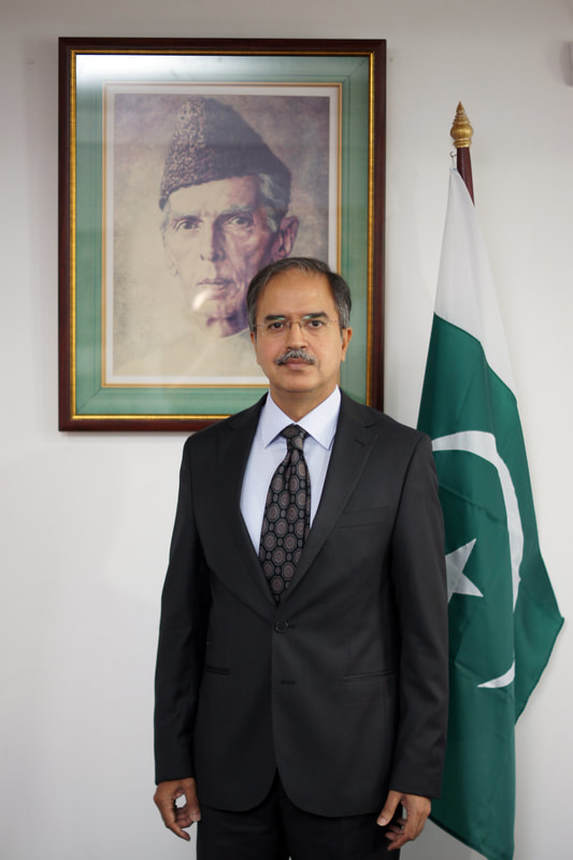
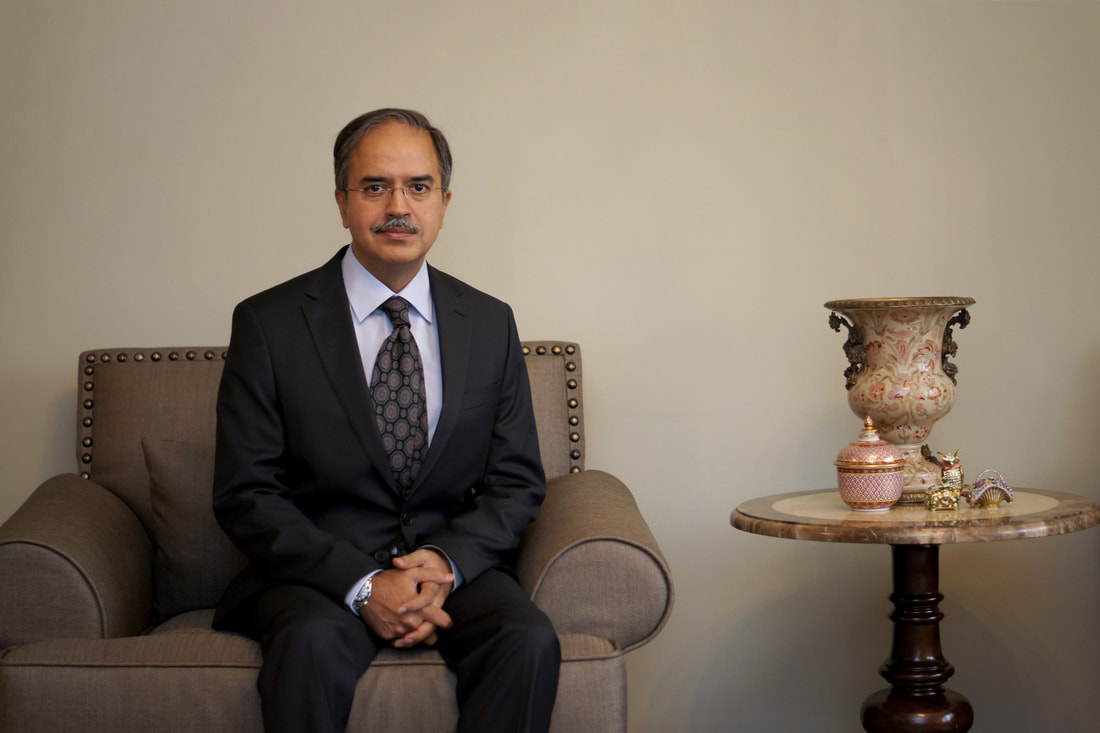
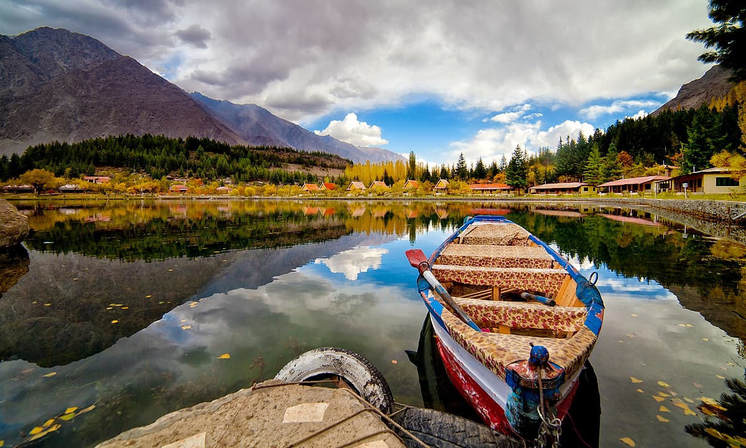
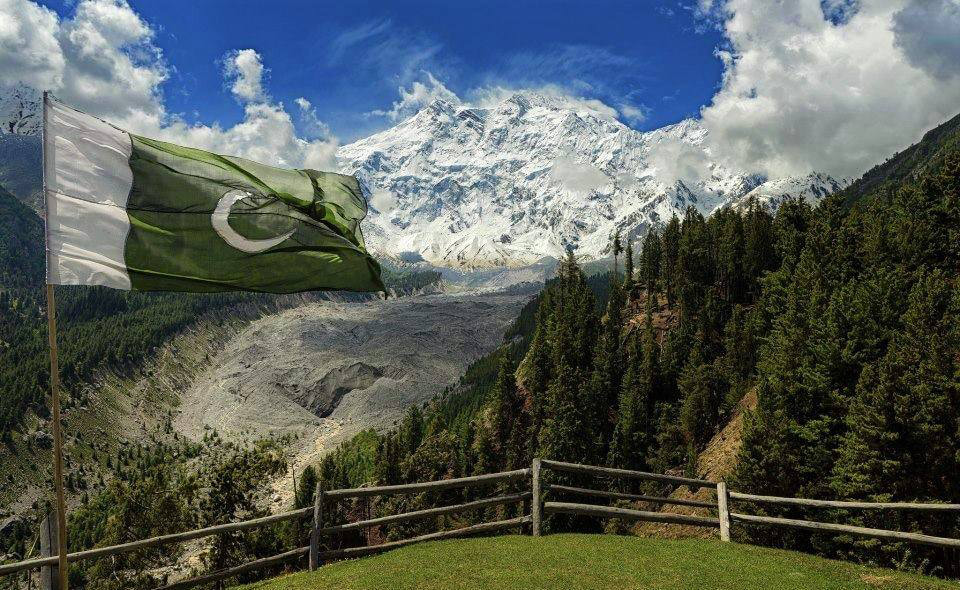
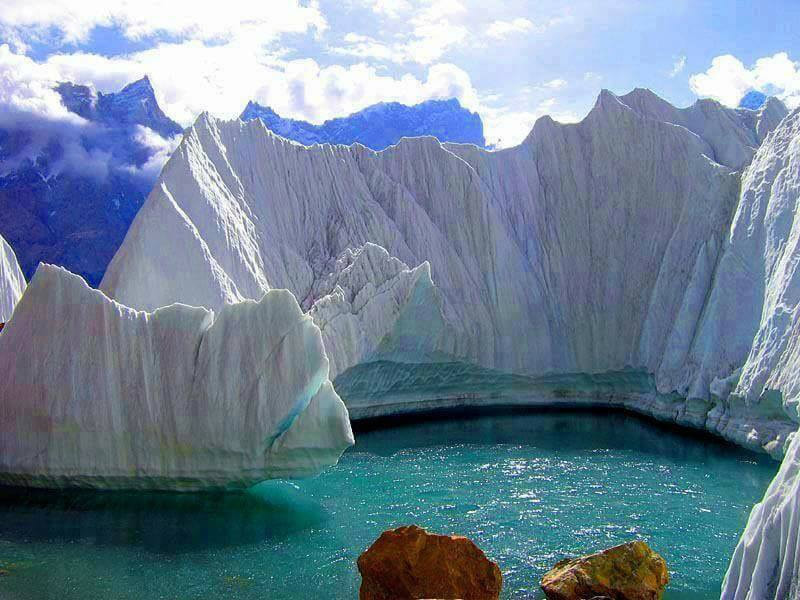
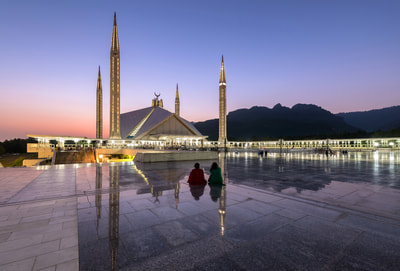
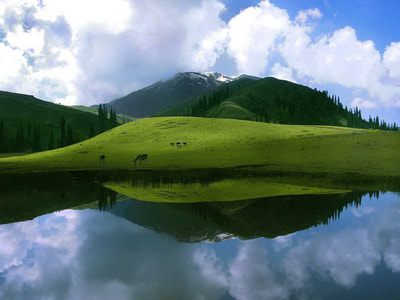
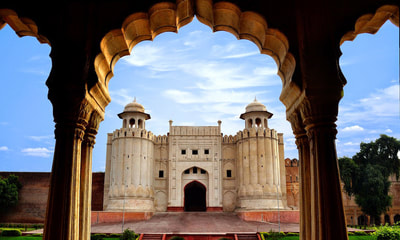
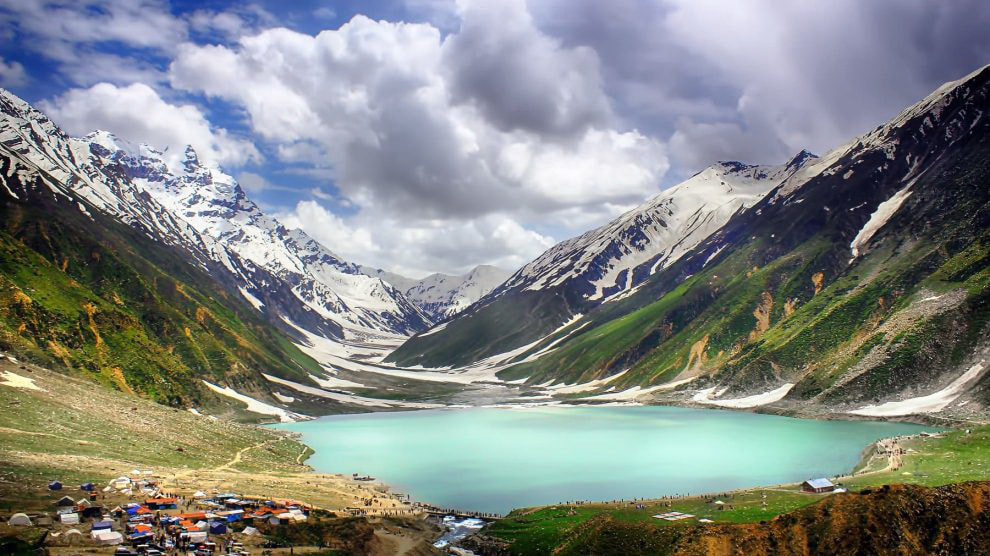
 RSS Feed
RSS Feed
















